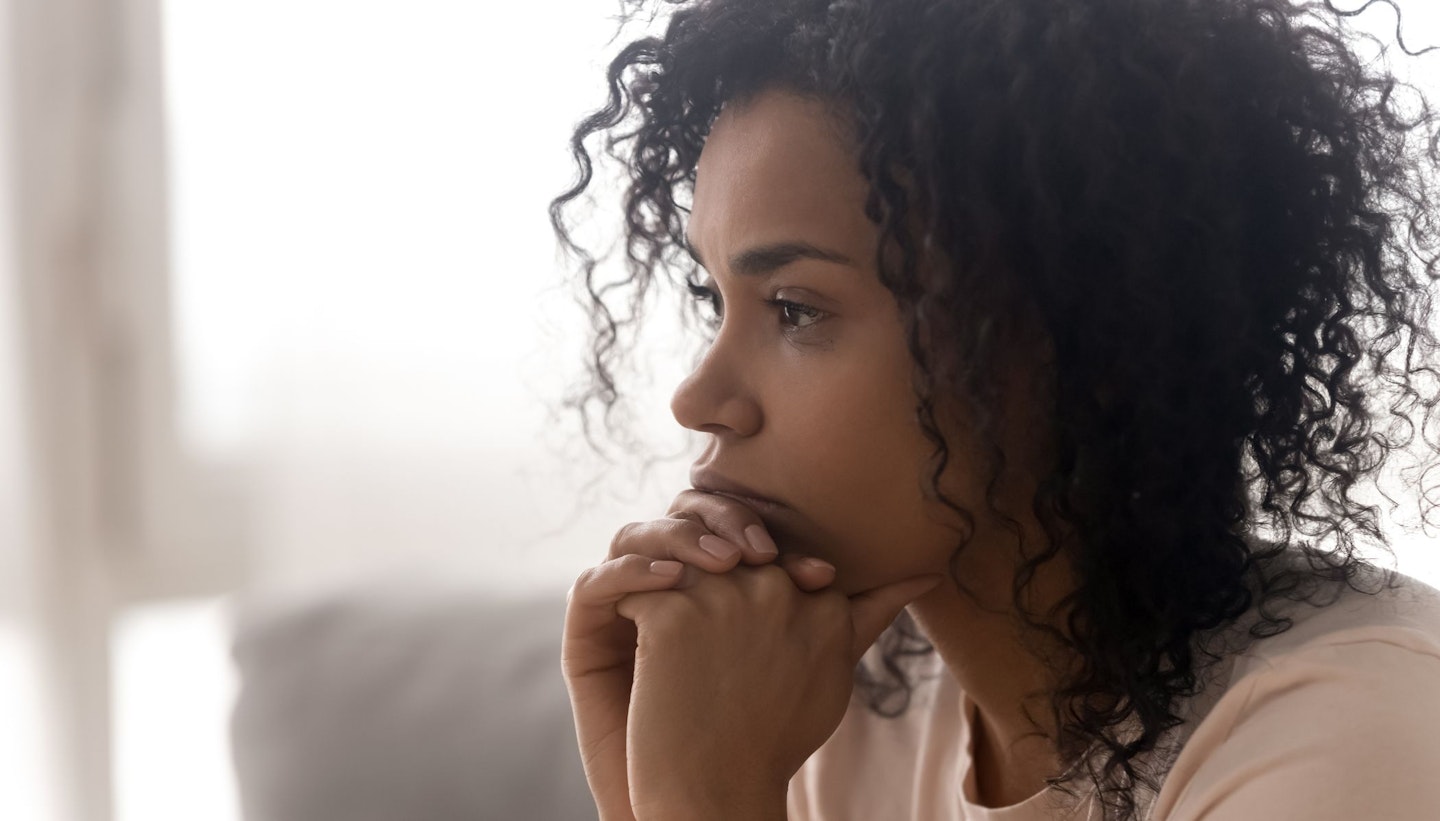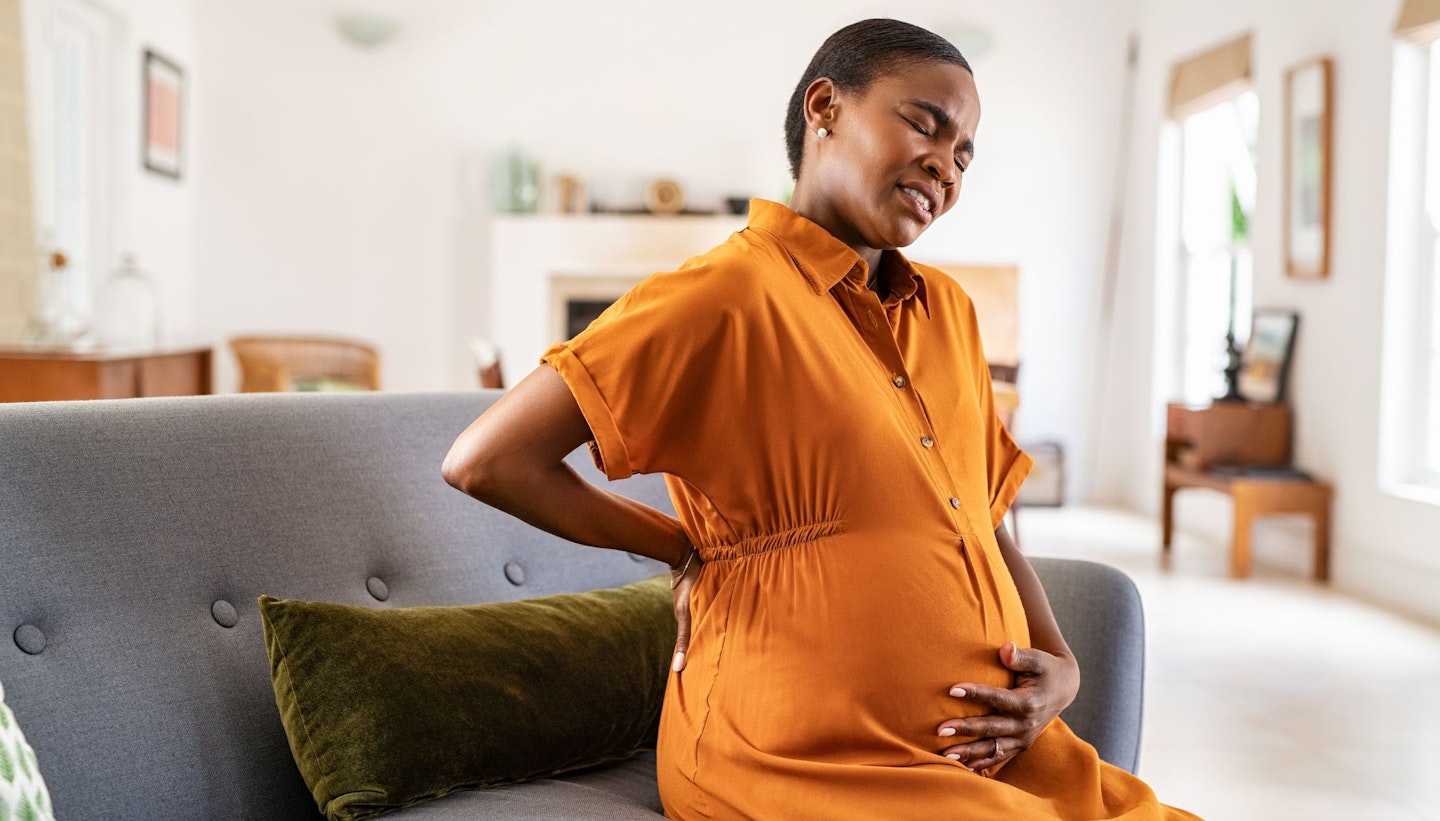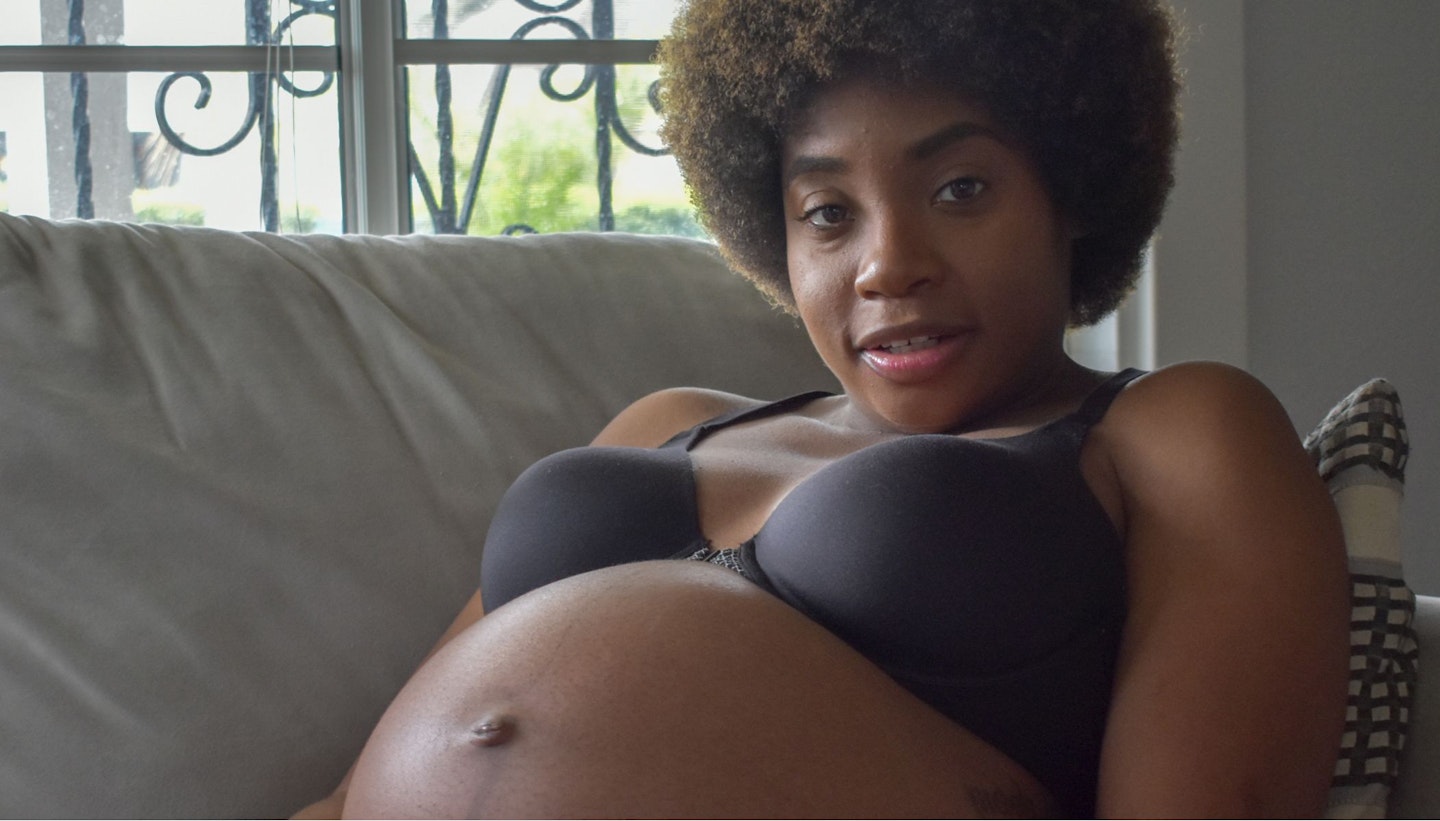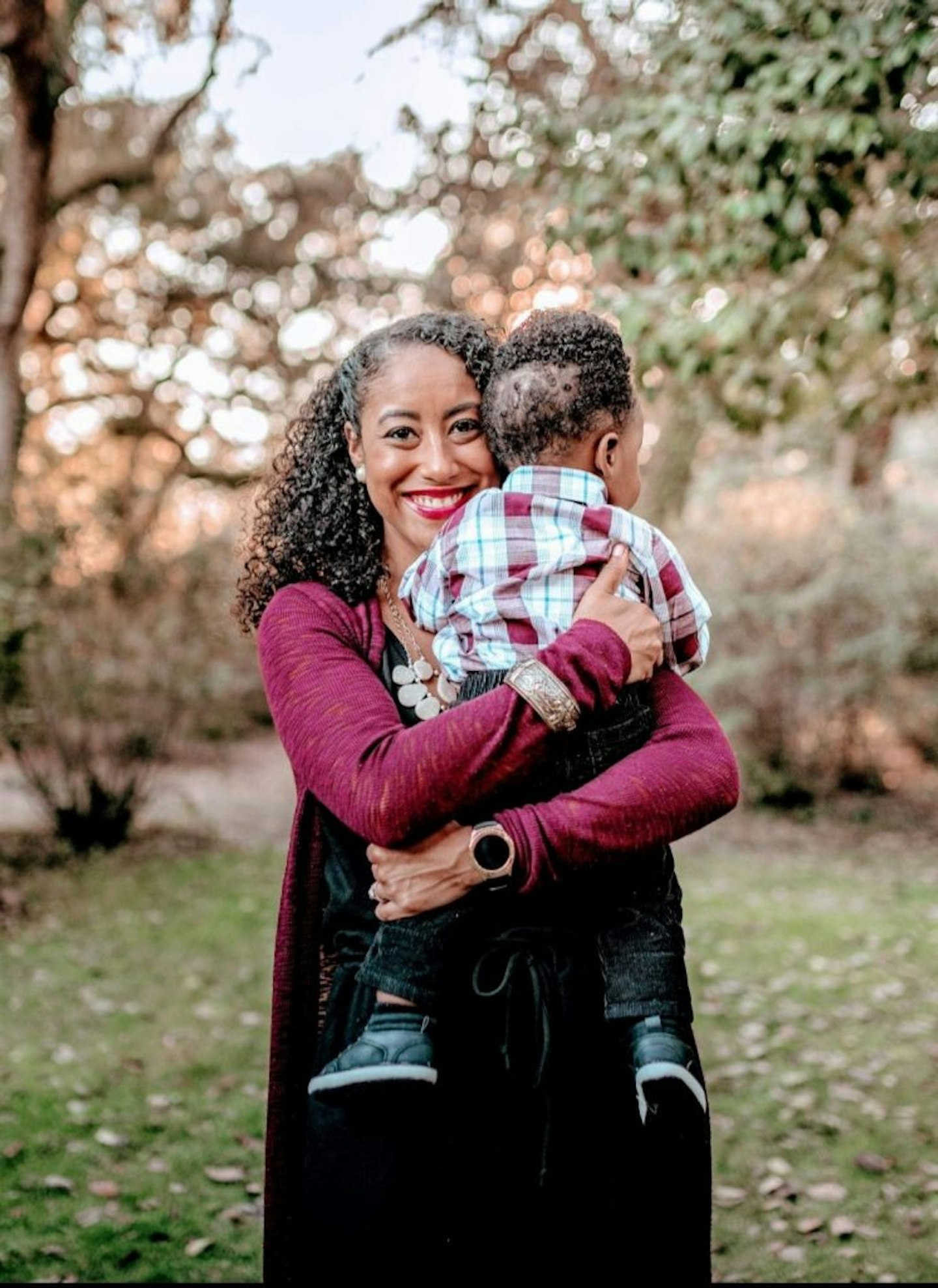When we think about pregnancy, we often imagine joyful moments—baby showers, nursery planning, and the sweet arrival of a little one. But for many Black women, the journey into motherhood comes with serious risks.
“Raising awareness about Black maternal health is not just important; it’s imperative. Black women face shocking disparities, including higher maternal mortality rates, all rooted in systemic racism and limited access to quality care," Patience Riley certified perinatal mental health therapist at WHOA MAMA and communications manager at the Perinatal Mental Health Alliance for People of Colour, tells Mother&Baby.
Adding, "By increasing awareness, we’re not only driving change and advocating for better resources but also empowering Black women to take charge of their healthcare journeys and foster a supportive community."
So, what’s really going on with Black maternal health, and how can we help?

Black maternal health disparities: The shocking statistics
The statistics on Black maternal health are alarming. In the UK, Black women are four times more likely to die during pregnancy, childbirth, and post-birth than white women. Black women are also up to twice as likely to experience a stillbirth, and Black babies are twice as likely to die before reaching their first birthday. Harvard experts suggest that racism, not just poverty or lack of education, plays a critical role in this crisis.
Even with fame, wealth, and access to world-class healthcare, both Beyoncé and Serena Williams experienced life-threatening complications during childbirth. Their stories show that these disparities aren't solely based on socioeconomic status. The risks Black mothers face are deeply rooted in systemic issues, and the fact that even these high-profile women nearly lost their lives highlights the scale of the problem.
Adding to this narrative is six-time Olympic gold medalist Allyson Felix, who has spoken out about the racial disparities in maternal health. In 2019, she testified on Capitol Hill following her own life-threatening experience. “Mothers don’t die from childbirth, right? Not in 2019. Not professional athletes. Not at one of the best hospitals in the country,” Allyson shared. “I thought maternal health was solely about fitness, resources, and care. If that was true, why was this happening to me? I was doing everything right.”
Allyson continued, “I learned that my story was not uncommon. There were others like me—Black like me, healthy like me, doing their best, just like me. And they faced death just like me too.” She emphasised the need for more support for women of colour during their pregnancies. “There’s a level of racial bias within our healthcare system that is troubling and will be difficult to tackle, but that doesn’t mean that we shouldn’t.”
In an essay published by Glamour, she recounted her emergency C-section at only 32 weeks pregnant due to preeclampsia. Felix explained that if she hadn’t gone for a check-up and delivered her baby that day, she and her daughter, Camryn, could have died. “To be faced with losing your own life creates a certain level of fear. But thinking about losing the life of my unborn child just felt unbearable,” she wrote. “I was terrified because I didn’t feel prepared for this. I hadn’t been looking for the signs of preeclampsia. I didn’t feel educated.”

What happens in healthcare settings?
These stories highlight a frightening reality, illustrating a systemic issue within healthcare that fails to adequately protect and support Black mothers. Beyoncé delivered her twins by emergency Caesarean section after being bedridden due to toxemia (or preeclampsia). Similarly, Serena faced a pulmonary embolism just a day after giving birth.
Research indicates that racial disparities in healthcare are significant. For instance, doctors often dismiss or downplay the pain complaints of Black patients compared to white patients. This leads to feelings of insecurity and concerns being ignored, which can have dire consequences.
Take the case of Serena. Just a day after her C-section, she experienced severe breathing issues due to a pulmonary embolism, a situation she was all too familiar with. “Because of my medical history with this problem, I live in fear of this situation,” she wrote in an essay. Despite her urgent alerts to nurses, her concerns were initially brushed off, delaying critical care.
Dr. Allison Bryant Mantha, a vice chair at Massachusetts General Hospital, emphasises in her interview with American Heart Association that the challenges for Black women begin long before they step into the hospital. “Racism affects so many things before the patient even gets to the clinical encounter,” she explains. Implicit bias and systemic racism shape the care that women receive, leading to disparities that can be life-threatening.
A report titled Unequal Treatment: Confronting Racial and Ethnic Disparities in Health Care found that bias and stereotypes can negatively impact the level of care people of colour receive. This often leads to crucial information about a patient’s medical history being lost in communication. As a result, many Black women enter pregnancy in less-than-ideal health.
Birth doula Mars Lord adds, “When you start to talk about the way you felt you've been treated, and people say "no, it's not racism, it's not black women it's all women, this happens to all women", you're shut down, you're silenced, and so you say nothing.
We need to dismantle the stereotypes, the stereotype of the angry black woman, the strong black woman. We need to allow people the freedom to say "I'm struggling" rather than shutting them down and saying that's just the way the system works. If we can accept that education, police etc is all systemically racist, and we're working to change that, then we need to accept the same of the medical system.”

Why are these disparities happening?
Dr Ana Langer, director of the Women and Health Initiative at Harvard T.H. Chan School of Public Health, tells the American Heart Association that several complex factors contribute to these racial disparities. She emphasises that lack of access and poor quality of care are significant issues, particularly among women with lower socioeconomic status.
“Basically, Black women are undervalued,” she says. “They are not monitored as carefully as white women. When they do present with symptoms, they are often dismissed and left to advocate for their own health amidst a life-threatening situation."
The data doesn’t lie
Findings from Mothers and Babies: Reducing Risk through Audits and Confidential Enquiries across the UK show just how serious the issue is. This organisation looks into why mothers and babies are dying during pregnancy and works to improve care.
Here’s what the numbers say:
-
White women: About 7 out of 100,000 die during pregnancy.
-
Asian women: 12 out of 100,000.
-
Mixed ethnicity: 15 out of 100,000.
-
Black women: A shocking 32 out of 100,000 die during pregnancy.
These stats paint a scary picture for many Black mothers, especially those in poorer areas, where the risks are even higher.
Addressing cultural safety
One crucial step in tackling these disparities is ensuring cultural safety in maternity care. Patience emphasises the importance of respecting and recognising cultural differences among caregivers.
Patience says, "The silencing of Black women in healthcare is a serious issue. When their experiences are dismissed, it perpetuates systemic racism and harms both mental and physical well-being. As a Black woman and perinatal mental health therapist, I often hear from clients about the frustration and exhaustion of navigating stereotypes like the ‘angry Black woman’ and ‘superwoman.
Healthcare providers must create safe spaces where Black women can voice their concerns without fear of being dismissed or judged. We need to empower Black women to be informed and engaged in their own healthcare journeys. It’s crucial for their well-being and the well-being of their families."
The NHS told BBC Stories that it's working to reduce health inequalities and improve outcomes for mothers and their babies to ensure they receive safe and personal maternity care.
The importance of advocacy
While there is a huge focus on the healthcare system to get things right, so that black women do not have to fear for their lives in order to have a child, there are some things we can do as individuals to improve the situation.
Midwife and mother of one, Illy Morrison, explains that a major part of the work to combat these unacceptable statistics, is working on advocacy. Illy is an advocate for black birthing people and she often shares helpful advice that can help women to advocate for themselves. It is important because a lot of black women do not feel as though they can advocate for themselves; especially if it is in an area that they lack knowledge in.
Patience agrees, "Advocating for yourself is not just about individual experiences; it’s also about contributing to a larger conversation about maternal health equity. Your voice matters, and by speaking out, you can help pave the way for future generations."

How to be safe and protect yourself as a black birthing person
Illy and Patience share their top three tips for Black mothers to empower themselves:
Be the centre of your care: If something isn’t clear, ask questions until you fully understand.
Educate yourself about pregnancy, childbirth, your healthcare options, rights, and your family's health history. Understanding your health history, coupled with education about maternal health during pregnancy, childbirth, and postpartum (including post-loss and adoption), can help you ask informed questions and make confident decisions about your care.
Choose your support wisely: Ensure your birth support person is there to listen and advocate for you.
Build a team of providers and a support network of people who uplift you—friends, family, support groups, or community groups. Your health care team may include a medical provider (OBGYN, midwife, or nurse practitioner), doula, therapist certified in perinatal mental health, lactation consultant, or childbirth educator who understands the unique challenges Black women face. Having a supportive presence throughout your pregnancy, at appointments, labour, birth, and in the postpartum period can make a huge difference in health outcomes.
Knowledge is power: Educate yourself about your rights and what’s considered normal during pregnancy and childbirth.
You are the expert of your own body. If something doesn’t feel right don’t hesitate to express your needs, concerns, or ask for further explanations. If your concerns are dismissed seek a second opinion or find a provider who aligns better with your values and needs.
"A resource I used and encouraged others to use is The Irth app because it offers prenatal, birthing, postpartum, and pediatric care reviews from other Black and brown women," Patience recommends.
You can find a wealth of information on Illy’s instagram @mixing.up.motherhood where she speaks a lot about her own traumatic experience, how to advocate for yourself, how not to be gaslit and how to build a good relationship with your care providers.
What can we do to improve the care of black birthing people?
Olivia Boschat, a solicitor specialising in women’s health, highlights the need to address these disparities: “Racial healthcare inequalities are costing lives. We need to listen to women’s concerns and take them seriously.” Initiatives like the Royal College of Obstetricians and Gynaecologists’ Racial Inequality Taskforce are working to change the narrative, but there’s still much more to be done.
According to Patience, “Addressing the disparities in maternal health outcomes for Black women and birthing people of colour requires a multifaceted approach from both governing bodies and the medical community.
There are several actionable steps that can be taken:
1. Acknowledge the role of racism and cultural oppression in the healthcare system.
2. Support political and economic policies that help empower communities of colour.
3. Diversify healthcare teams with Black and brown providers.
4. Retrain and educate current healthcare professionals on culturally appropriate maternal health curriculum for Black and brown communities.
5. Build respectable relationships with community organisations that support Black and brown communities.
6. Provide culturally based care and social support for pregnant and postpartum people.
7. Increase doula support for Black and brown families.
8. Improve data collection and increase research on maternal health outcomes in Black and brown communities.”
How you can help
You don’t need to be a Black birthing person to make a difference. Here are a few ways you can help raise awareness:
-
Educate yourself: Learn about the issues affecting Black maternal health.
-
Speak up: Share your knowledge and raise awareness in your community.
-
Support initiatives: Get involved with campaigns like Five x More, co-founded by Black mothers Tinuke and Clotilde, who advocate for change. They have gathered over 180,000 signatures on a petition calling for action.
Tinuke, mum of two, hosts fun and safe events for mums through her platform @mumsandtea. Clotilde, a mum to two boys runs @_Prosperitys, a mental wellbeing social enterprise supporting Black and South Asian moms in Lambeth and Southwark.
Since launching the Five x More campaign, they have been vocal advocates, raising awareness of the challenges many Black women face during childbirth.

As we take time to reflect during Black History Month, let’s remember that every mother—regardless of her background—deserves compassion, understanding, and the best care possible when bringing new life into the world. It’s so important for us to lift each other up, share our stories, and push for the changes we need. Together, we can create a future where every mother can embrace the beauty of childbirth without fear. After all, we’re all part of this journey, and every voice matters!
About the author
Anne Lora Scagliusi is a Senior Digital Writer at Mother & Baby. She is a Scotland-based journalist with over a decade of international writing experience, specialising in women’s health, maternal mental health, and wellness. Her work has been featured in Vanity Fair, Marie Claire, and Glamour and has appeared on several Vogue global editions. She is mum to a one-year-old bambino and lives between Italy and the UK.
